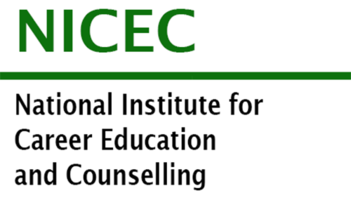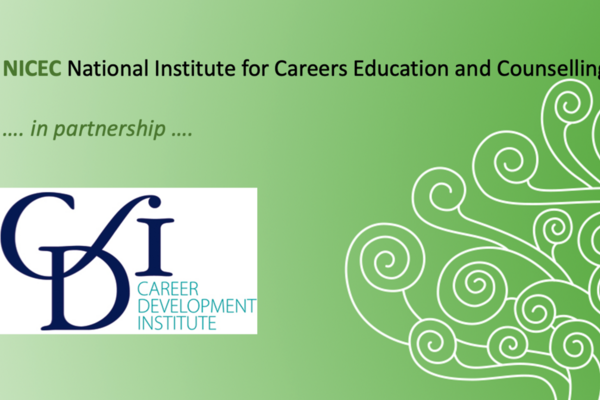Bookings for this event are through the CDI website
We live in difficult times where unsubstantiated claims and fake news can lead to the impeachment of a President! What we need in careers work is policy and practice that is founded on an evidence base around which there can be both consensus and debate.
The purpose of this Cutting Edge event is to start a conversation between those working around the creation of evidence (researchers) and those using evidence to inform and enhance policy and practice (practitioners).
However, it will not have escaped your notice that researchers and practitioners are not discrete groups; practitioners undertake and use researched evidence, and researchers rely on practitioner knowledge to focus their research questions. This co-construction of evidence (or data) about careers work arguably strengthens it. Whether you are predominantly a practitioner or a researcher you will have something to contribute to this event because we assert that the moment at which researched data becomes evidence upon which to make decisions about policy and practice is when we both understand it and are motivated to use it.
Objectives
By the end of the event, participants will have:
Considered the collection of meaningful data in careers work
Explored the capacity for practitioner research to generate evidence
Learned about how data collection can impact policy and practice in higher education
Discussed how to assess a range of sources of evidence
Reflected on the use of evidence in careers work
Agenda
10.00 -10.05 Introductions and welcome – chaired by Rosemary McLean
10.05 -10.45 What do we mean by evidence – Jane Artess
Jane will introduce the topic by helping participants to consider what we mean by ‘evidence’ and why we might need to collect, understand and use more of it. She will draw upon a range of approaches to data collection and discuss how to assess and critique the sources of evidence typically used in career development work. This is likely to lead us to consider whether we can ever have too much data; whether there such a thing as good and bad data; and what do we want it for anyway?
10.45- 11.30 The role of the practitioner in research – Peter Mcllveen
Peter is a strong advocate of practitioner research being a source of evidence for research and practice. In this session he will provide some ideas and suggestions for practitioners to encourage them to use practical evaluation methods to produce evidence deemed “acceptable” and received as “evidence” in the research world.
11.30 – 12.15 Break out groups.
Feedback (Q&A and discussion)
12.15- 12.30 The CDI’s ‘evidence based’ repository - Lyn Barham
Lyn will signpost the recently launched ‘evidence-based repository’ available on the CDI website, a resource to help everyone identify the evidence that confirms the value of career development activity. The repository is intended to be the ‘go to’ place when we want signposts to evidence of what works in professional practice, or need to persuade sceptics of the value of what we do.
12.30 - 13.15 pm Lunch/Virtual Networking
13.15 – 14.00 pm Taking Charge of Our Own Evidence -Sareena Hopkins
Sareena will present the results of 10 years of research conducted in close partnership with frontline practitioners that has culminated in a new approach to defining meaningful metrics and collecting data in a way that not only provides compelling evidence to funders, but also enhances and supports day-to-day practice on the frontlines.
14.00 - 14.45 pm Drawing from large data sets to inform our practice - Bob Gilworth
Careers Registration is the process by which Higher Education institutions collect Careers and Employability data from all students through the formal enrolment process. The data cover stages of career thinking and the acquisition of employability-related experience in all cases and on aspirations/interests in occupational sectors in a growing number of institutions. Careers Registration was first devised and implemented at the University of Leeds, UK in 2012 and has since been adopted by over 80 institutions in the UK and by institutions in Ireland, Australia, New Zealand and Portugal. The session will cover: Why and how the innovation happened. Examples of the data it generates and how the data are applied to strategy, practice and research within and between institutions.
14.45 – 15. 15 Break out groups.
15.15 pm – 15.30 pm Learning review and close- Rosemary McLean
NICEC Biographies
Jane Artess
Jane began working in higher education as a tutor of the postgraduate Diploma in Careers Guidance at Manchester Metropolitan University following many years working in local authority careers services. She described it as ‘putting practice back into theory!’ and she particularly enjoyed establishing new academic and professional courses. As Senior Learning and Teaching fellow she managed PGCE and masters programmes in post-compulsory education. Developing research interests led to Jane being appointed as Director of Research at HECSU (the Higher Education Careers Services Unit) where she commissioned the Futuretrack studies and developed HECSU’s research work for clients including Higher Education Funding Council for England, Department for Business Innovation and Skills, Universities UK and the Higher Education Academy as well as individual institutions and professional bodies.
Jane’s work has involved contributing to conferences and work programmes in the USA, Denmark, Holland, Romania, Serbia, Japan and all over the UK and Ireland. Recently Jane was Principal Research Fellow with the International Centre for Guidance Studies at the University of Derby and is now a Visiting Fellow; she was Chair of NICEC in 2017 – 2020.
Dr Lyn Barham
Lyn has roles with both NICEC and the CDI. As a Fellow of NICEC and an independent researcher she has conducted numerous studies, including research into the older workforce. In her CDI role as Project Associate (Research) she develops and curates CPD resources and newsletters for members. In recent months, she has undertaken the development of the ‘evidence-based repository’, funded and curated by the CDI as a service to the whole career development sector.
Lyn’s interests stretch beyond the UK, having been an Executive member of the International Association for Educational and Vocational Guidance (IAEVG) for ten years, and subsequently spent a year working alongside the careers research unit at the University of Padua, Italy.
Dr Bob Gilworth School of Education and Professional Development, University of Huddersfield.
Bob has been in leadership roles in Higher Education Careers and Employability for around 25 years. Most recently, he was the Director of the Careers Group, University of London. Prior to that, he was Director of the Careers Centre at the University of Leeds for around 13 years and before that, Head of the Careers Service at the University of Huddersfield. He is now back at Huddersfield in an academic role, teaching on the MA in Careers Guidance and Development and engaging in research and consultancy in the field.
Bob is the immediate past President of AGCAS (the Association of Graduate Careers Advisory services), a Fellow of NICEC (National Institute for Career Education and Counselling) and sits on the Research and Policy Group of the Institute of Student Employers (ISE). In 2012, Bob and his team at the University of Leeds devised and implemented Careers Registration, the system of collecting data on students’ career readiness, work experience and aspirations. Careers
Registration has since been adopted by over 80 universities in the UK and adopted by institutions in Ireland, Australia, New Zealand and Portugal. He is regularly consulted by institutions in relation to Careers and Employability strategy and has published work in this area.
Sareena Hopkins
As Executive Director of the Canadian Career Development Foundation (CCDF), Sareena works in Canada and internationally to strengthen the reach and impact of career development. With her team at CCDF, she moves from ideas to action in areas of public policy, research and development, capacity building and advocacy. Sareena is on the Board of the International Centre for Career Development and Public Policy, the National Panel for the Labour Market Information Council and is a proud International Fellow of NICEC.
Sareena can be reached at [email protected]
Rosemary McLean
Rosemary is a registered Career Practitioner and Chartered Occupational Psychologist with many years’ experience in the careers field. She now enables organisations to develop and shape career development strategy to support business goals and align individual aspirations and passions with internal opportunities. Her consultancy work with the Career Innovation Company is evidence based applying systemic approaches to career development in organisations including the development of career frameworks. She also designs and delivers career development workshops and has developed a next generation on-line career development course ‘Be Bold in your Career’ to scale up meaningful careers support to people in the workplace. Rosemary has worked as a careers coach in both the career transition and careers guidance
fields and is a CDI Legacy Fellow and mentor as well as NICEC Fellow.
Prof Peter Mcllveen
Professor Peter McIlveen leads the Australian Collaboratory for Career, Employability, and Learning for Living (ACCELL). ACCELL is a multidisciplinary research team focused on adaptive capacity and career development learning, and the psychology of working.
PLEASE NOTE - bookings are to be made through the CDI website: http://thecdi.net





